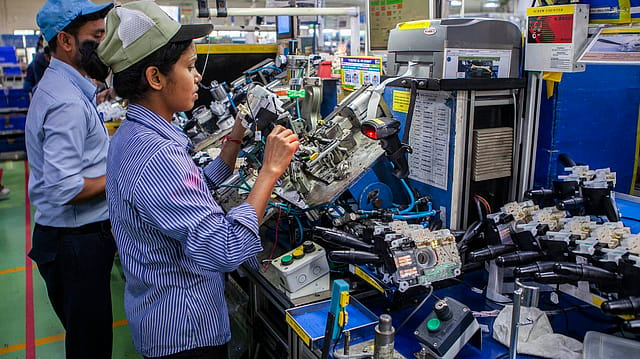Indian economic recovery stronger than rest of the world; Covid-19 scars remain: World Bank
ADVERTISEMENT

India's exports and overall economic activity have recovered more strongly than the rest of the world. However, Covid-19 era scars remain a road block, says a new report from the World Bank.
The "Coping with Shocks: Migration and the Road to Resilience" South Asia Economic Focus report says that India's services exports have recovered more strongly than in the rest of the world, and its ample foreign reserve buffers have afforded resilience to the country's external sector.
The report points out that even in India, which leads economic recovery in the South Asian region, Covid-19 triggered weaknesses in supply chains and employment remains. "The PMI manufacturing suppliers' delivery time, a gauge for supply chain delays, has only improved slightly in India since June 2022. Globally, the New York Fed supply chain pressure indicator shows early signs of normalising in global supply chains, but PMI delivery times are still lengthening albeit at decelerating speeds, suggesting that any relief from global supply chain pressures will take some time to seep into domestic economies. Employment has started expanding in India month to month since March, but the recovery speed was slow until August when it surpassed those in the rest of the world," the report states.
It also says that India's economy-wide employment index is improving month-over-month but at slower speeds than the rest of the world outside of Asia, and demand for the rural work programme remains elevated. "As a result, while India's private consumption in the aggregate expanded in 2022Q2, recovery remained uneven: while high-income households' consumption of contact-intensive services and consumer durables recovered, rural and low-income households' consumption remained weak. The return of migrant workers from the region has been slow, possibly due to the scarring effects of the pandemic lockdowns, which reduce migrant-sending households' incomes," the report says.
According to the report, services-led economies like India, Nepal, and Maldives are expected to maintain a reasonable recovery trend despite headwinds, and all countries in the region will see their resilience tested as global energy prices are expected to remain very high and global demand for goods will weaken. "The countries responding to high import prices by setting price caps or quantity barriers—which distort price signals—will experience a negative impact on growth," it says.